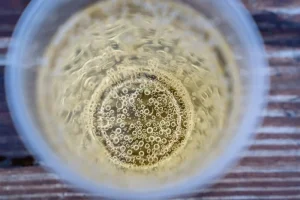
Naltrexone helps decrease total drinks consumed per day, cravings, and pleasurable effects of alcohol. Injectable Naltrexone (Vivitrol) injections are given once a month, providing a way to get beneficial effects for 30 days at a time. Patients can and do drink while taking naltrexone, but it is less pleasurable, and they also take Naltrexone to prevent or decrease anticipated likely drinking events.

Mental Health Effects When You Stop Drinking
- “You could use a calendar, journal or any number of tracking apps.” Drink Control Alcohol Tracker or Less are two examples of free tracking apps available on iOS devices.
- Severe symptoms may require benzodiazepines to prevent serious consequences of alcohol withdrawal.
- If you feel physical cravings or withdrawal symptomswhen you quit drinking, you shouldn’t try to stop cold turkey.
- You may not be completely ready to stop drinking or know exactly how to get sober from alcohol, but even just having the thought that you want to stop and need help is a good place to start.
- It may even help if you spend time with other nondrinkers for a while so you can support each other.
- Emotionally, you may feel some anxiety or sadness about ending a chapter of your life and nervousness about the future.
You may also begin to notice a number of improvements in your physical health. You’ll have more energy and stamina, and you may notice that your skin looks healthier. Others may have increased marital or relationship problems that are heading toward divorce or breakups. Maybe your work life has suffered, and your boss is tired of you calling in sick or coming in late. Perhaps your school performance has declined and you’re in danger of failing or you’ve been missing so many classes because you’ve been hungover that you can’t catch up. An addiction is a brain disorder, after all, and not something that’s easily resolved.
- If you want to stop drinking for good, don’t let past relapses discourage you from trying to quit.
- Group therapy, led by a therapist, can give you the benefits of therapy along with the support of other members.
- Set a reminder once or twice a day to look through your list and share it with a supportive person in your life if you feel comfortable.
- Alcohol use disorder (AUD), or alcoholism, is a chronic medical condition characterized by the inability to control or limit one’s alcohol consumption despite negative consequences.
- Like other symptoms, the impact on mood depends on the amount and duration of your alcohol use.
- Make sure you have someone with you if you decide to use again.
Behavioral Treatment
These first few weeks are critical because they are when the risk of relapse is highest. When that person cuts out alcohol, there is a period when their brain hasn’t how to overcome alcoholism yet received the message and still overproduces the stimulating chemicals. With alcohol out of the equation, though, these chemicals cause withdrawal symptoms.
- American Addiction Centers (AAC) is committed to delivering original, truthful, accurate, unbiased, and medically current information.
- Talk with a healthcare professional if you’re concerned you may experience detox symptoms when quitting drinking or cutting back.
Take action when the consequences of alcohol use disorder are easiest to reverse.
Through therapy, support groups and medication, you’ll be supported on your path to recovery. But if you’re living with alcohol use disorder, drinking is more than a habit. People with alcohol use disorder can’t stop drinking even when it causes problems, like emotional distress https://ecosoberhouse.com/ or physical harm to themselves or others. Alcohol abuse and addiction doesn’t just affect the person drinking—it affects their families and loved ones, too. Watching a family member struggle with a drinking problem can be as heartbreakingly painful as it is frustrating.
Think through the situations when you tend to reach for a drink—and plan a new approach.
Disulfiram (Antabuse) is another medication FDA-approved to treat alcohol use disorder, but it is used very infrequently. Alcohol consumption and abuse may cause you to look tired and puffy. Medications can be utilized to treat symptoms of withdrawal, help people remain in treatment, and prevent relapse. The type of medication a doctor prescribes depends on the type of addiction that is being treated. For example, there are different medications available to treat opioid, nicotine, and alcohol addiction.

What to expect from your doctor
